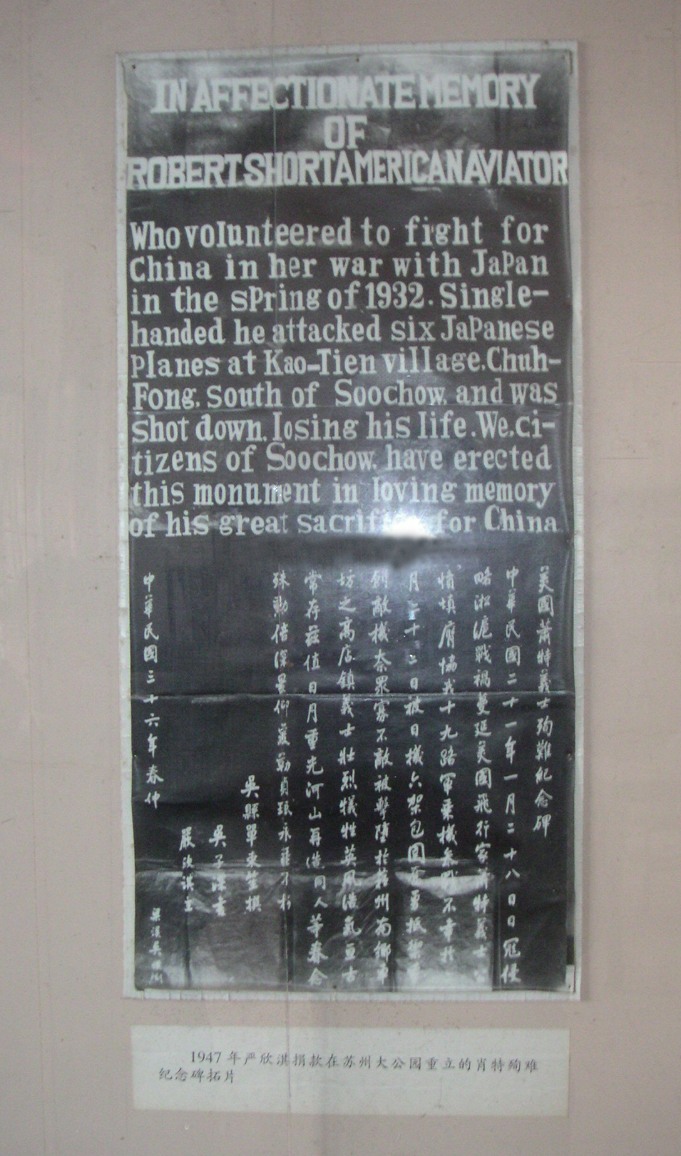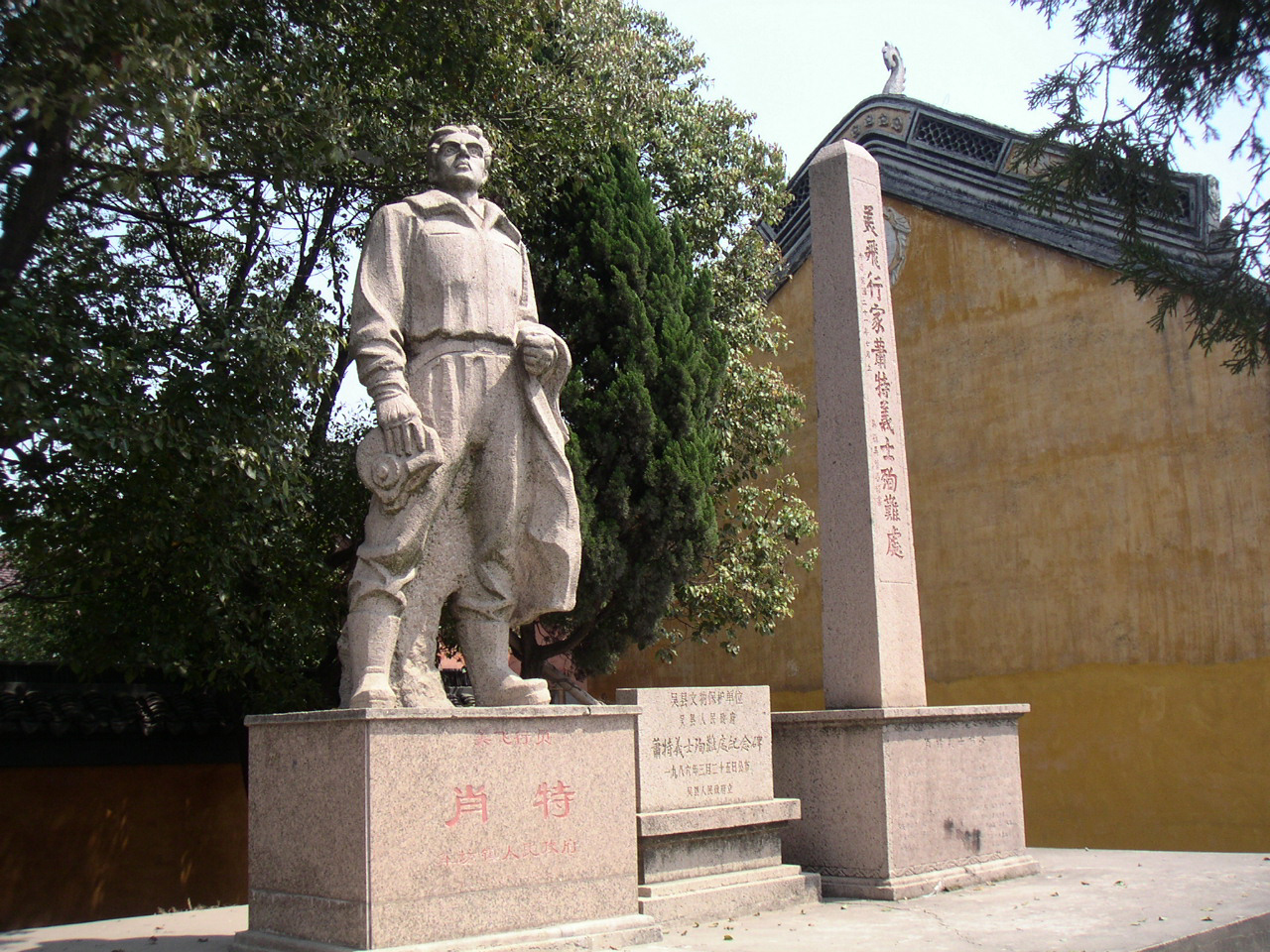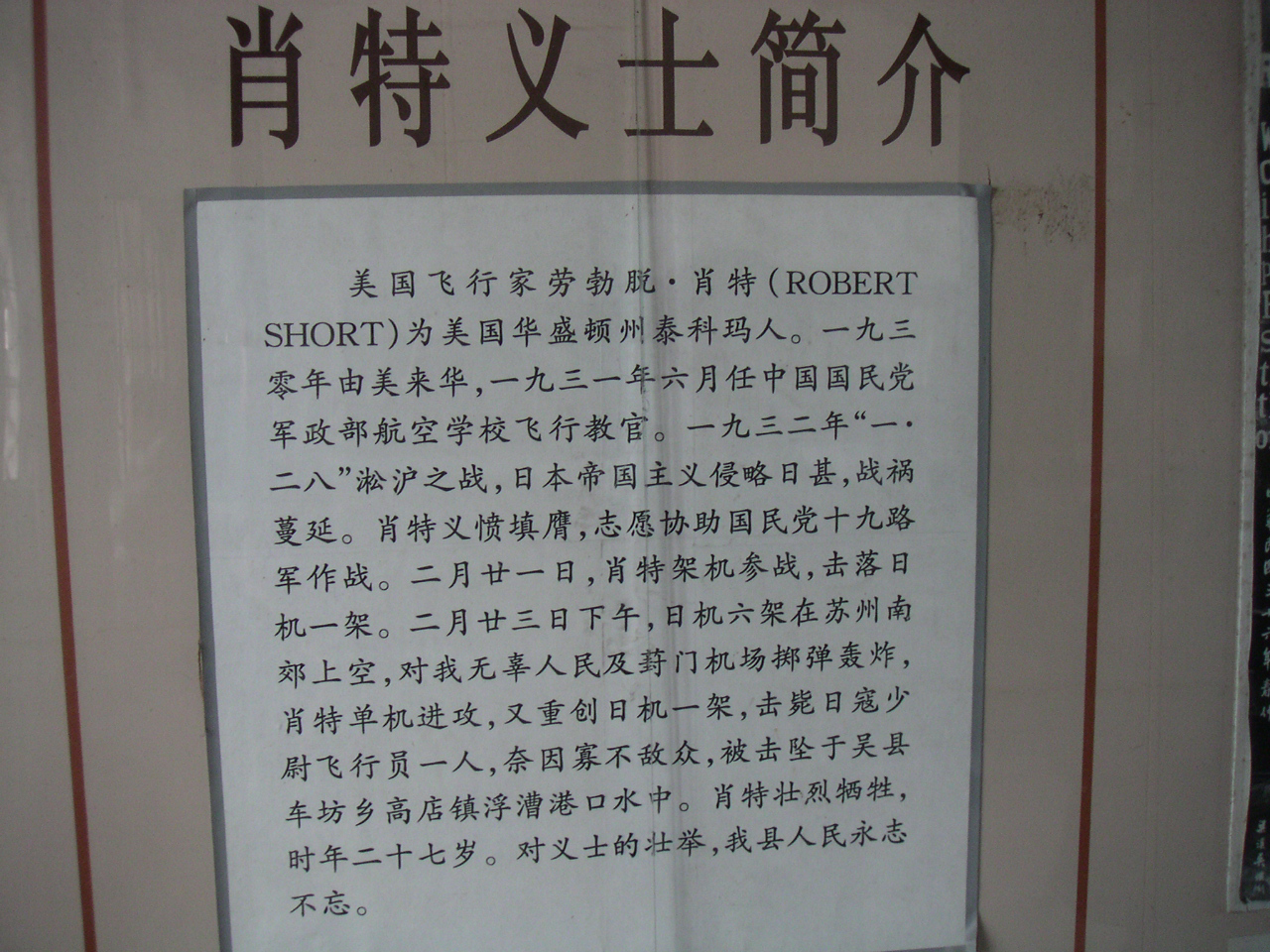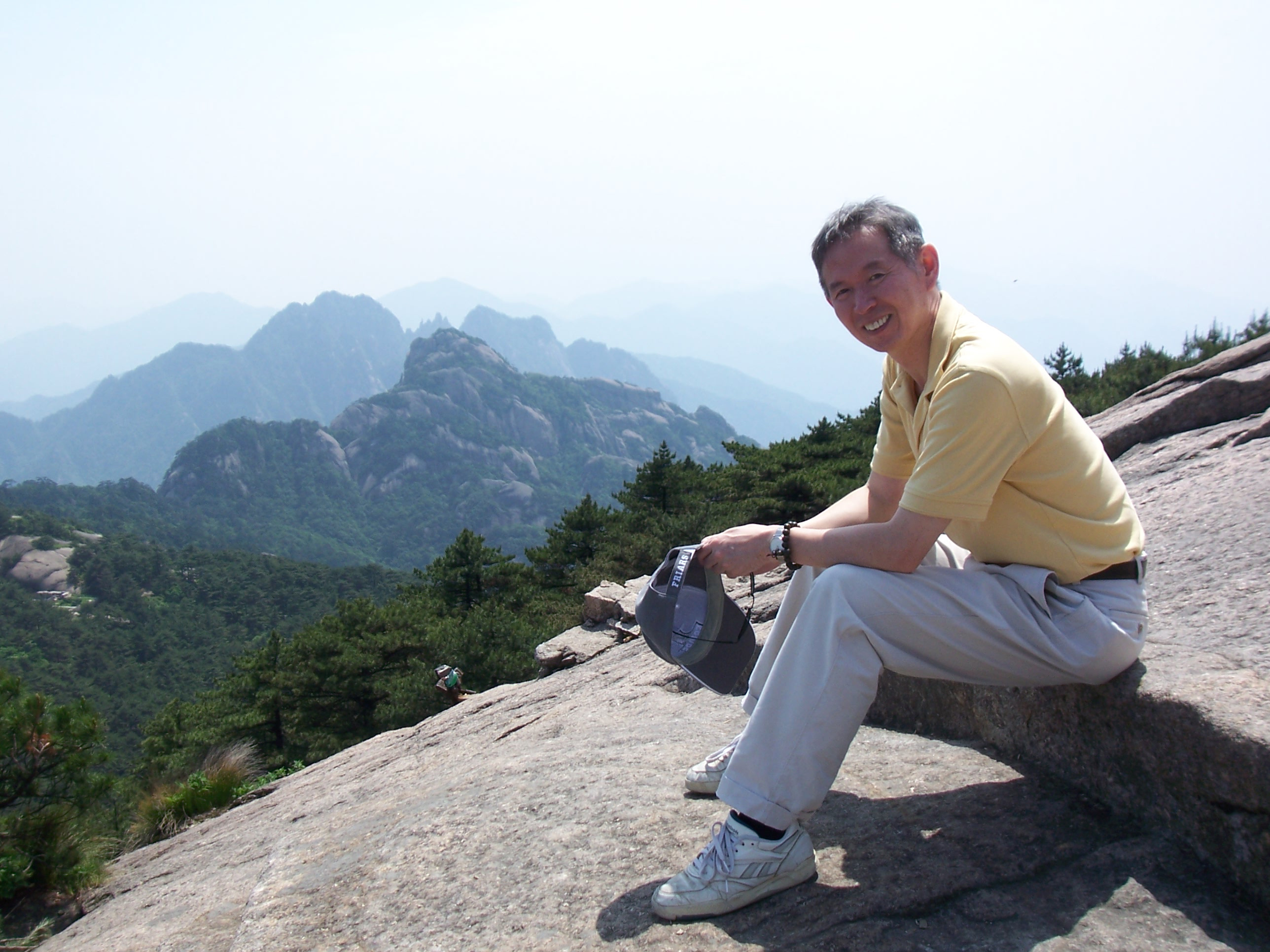Robert Short 1904 - 1932 An
true American Hero, forgotten by his own countrymen,
but remembered by
the Chinese people he gave his life for.
By
Richard
Douse
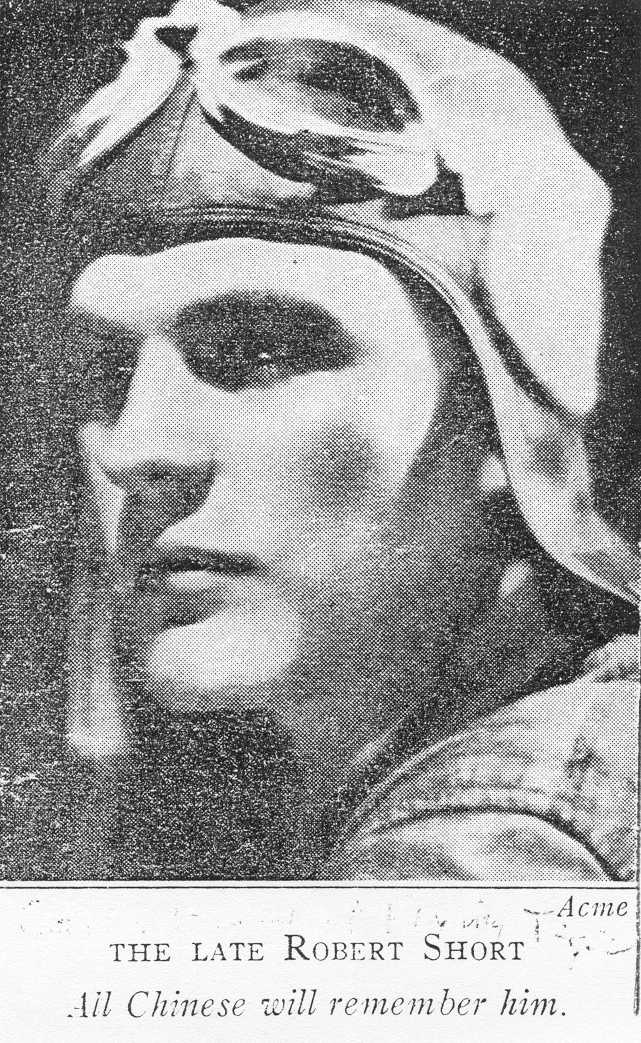
His name was
Robert F. Short. He was the first American to die in
aerial combat with
the Japanese. He was
also my fatherís best friend and flying buddy. And,
while they had an
airmail run between
Spokane and Seattle, Washington, both were daredevil
barnstormers
on weekends. Together,
Robert Short and Carl Douse planned on starting their own
airline
but it was not to be.
Robert was also a 2nd Lieutenant in the Army
Reserve. As Japan began its
march to dominate
all of Asia, Robert was given the assignment of delivering an
airplane to China. It was an
experimental
fighter plane, built by Boeing and given to the Chinese. On his flight to Nanjing on February 19,
1932
he ran into trouble when three Japanese fighter planes engaged him
in a fight. He was able
to shoot
down one of them, killing a Lieutenant Kidokoro.
At this point the other two broke off
the engagement
and Short continued on to his destination.
A fragile and yellowed news article from my motherís family
album tells the rest of the story that
occurred a few days later, and includes the following printed
letter to Robert Short's mother.
Mrs. Elizabeth Short
809
South 39 St.
Tacoma, Wash
Dear Mrs. Short:
With the greatest
respect and deepest regret we beg to inform you that, when on
February 23 at about 3 PM, six piratic airplanes
from the invading Japanese Navy were circling over Soochow,
dropping bombs on an entirely unarmed and innocent civilian
population,
destroying lives and property alike in a wanton fashion unheard of
before, your heroic son, Robert Short, flying a Boeing plane,
engaged
in a fight with the above planes, and after a 10 minute machine
gun fire, he was shot and nose-dived to death.
It is true that
Robert Short failed to bring down any of the invading planes, but
he did kill the Japanese flyer who headed the raid,
thereby preventing the Japanese attackers from carrying out their
bombing raid to the extent that they originally intended.
The best words of
condolence are insufficient to express to you our sorrow and
sympathy in this bereavement of yours. But
we can at
least assure you this: No parents could have a more heroic son
than Robert who gave up his own life that others might live. He dared Might
and died to defend Right for humanity and civilization. To say that he was fighting for China
alone would be belittling his gallant and
humanitarian deed, because it is for humanity and justice that he
died. The name of Robert Short will
live long in the scroll of honor of
great men, and his meritorious service will ever be in the memory
of all Chinese.
Yours sincerely,
(signed)
Chiang Kwang-nai (Nominal
Commander-in Chief of the Chinese 19th Army)
Tsai Ting-kai (Commander
of the 19th)
Tai Chi (Chinese Shanghai Chief of
Police)
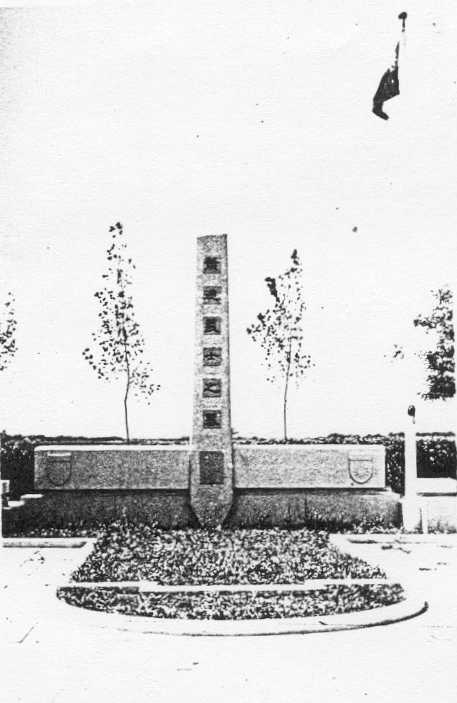
Robertís funeral was delayed a month
so his mother and brother could attend what became
in China the largest funeral ever
given a white man. Over 500,000 people filled the streets
of Shanghai.
The prominent Chinese banker, T. V. Soong, speaking for the
Chinese Government,
said, ďRobert Short, a friend
from a distant land, flew out of the sky and gave his life . . .
to the
Chinese people this act of
courage and sacrifice was electrifying.Ē
Posthumously, Hero Short
was created a Chinese Colonel.
You will not find Robert Short's name in our history books.
Why his name and deed have been
forgotten or overlooked, I can't say. But Robert Short was
the American ideal, I think. A young
man whose sense of right and wrong were separated by only the
thinnest of lines. A man who
did not hesitate to run to his plane, turn the prop by hand
to start it, and then, all alone, rush into
the sky to certain death in order to save innocent
people he had never met but knew were in deadly
danger. In Robert's world, Americans were fearless. It
is, I think, his kind of courage that identifies
the very best of what it is to be an American and provides a
shining light for the rest of us to try to follow.
But . . .
the Chinese citizens of Suzhou (Soochow) have not forgotten!
They remember him
to this very day! Below is a picture of the monument
erected circa 1986. Also shown are
pictures that tell the story of Robert's heroic act both in
English and Chinese. These photos
were taken from the memorial museum (the Chinese call it a
"Temple") located next to the
monument. These pictures were generously provided
by Mr. Maurice Chi (pictured below)
of Wrentham, Massachusetts, who obtained them from a
cousin during a recent visit to China.
